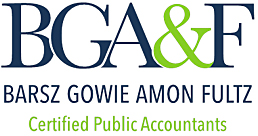When it comes to planning for retirement, it’s imperative to know that you have options. With multiple account types and investment options to choose from, determining which plan could work best for you can feel overwhelming and confusing.
However, not every plan will maximize retirement benefits for everyone equally; your financial options will vary based on your own circumstances and what you feel most comfortable doing with what resources you have at your disposal. Here are a few things you can consider as you plan your financially stable future:
- When do you hope to retire?
Some accounts set age requirements when it comes to withdrawing funds. For example, traditional IRAs and most employer-sponsored plans require you to begin taking funds out after age 70-1/2. On the other hand, a Roth IRA does not have an age requirement and allows you to withdraw your original contributions. Depending on when you plan to retire and when you need to start pulling out funds, you may benefit from one retirement plan over another.
- What does your employer offer?
Many employers offer retirement savings plans after a year of employment. This is a highly effective and convenient way to start saving for retirement, especially for those just entering the workforce. Sometimes, companies will offer to match a percentage of what you contribute to your account. However, this option isn’t available to everyone, in which case you may find more benefits from plans not offered by your current employer. In this case, it’s wise to look into alternative plans, such as setting up an IRA with a bank, life insurance company or mutual fund.
- When do you want to pay taxes?
Depending on which retirement investment option you decide on, you could be paying more in taxes now versus later. When opting for a 401(k) or a traditional IRA, your funds are taxed when you withdraw them at the time of retirement, which is when most people are in a significantly lower tax bracket. Additionally, should you choose to withdraw your funds before retirement age, you will most likely encounter severe early withdrawal penalties. Conversely, when contributing to a Roth IRA, your contributions are made on an after-tax basis, so you have more flexibility in how you use those funds and when you withdraw. Depending on your financial situation, you may want to consider when you’d prefer to pay taxes on your retirement funds, as your tax bracket will change throughout your life and career.
Planning for retirement can feel overwhelming if you don’t have the proper background knowledge or trustworthy source of information that can help guide you through the process. However, considering these factors now can help you build a better financial future and give you peace of mind. Whether you’re just getting started on your savings or you’re looking for a way to grow your funds even more, our team of knowledgeable and dependable advisors at Barsz Gowie Amon Fultz are equipped to help you successfully navigate your finances and plan for your future.




